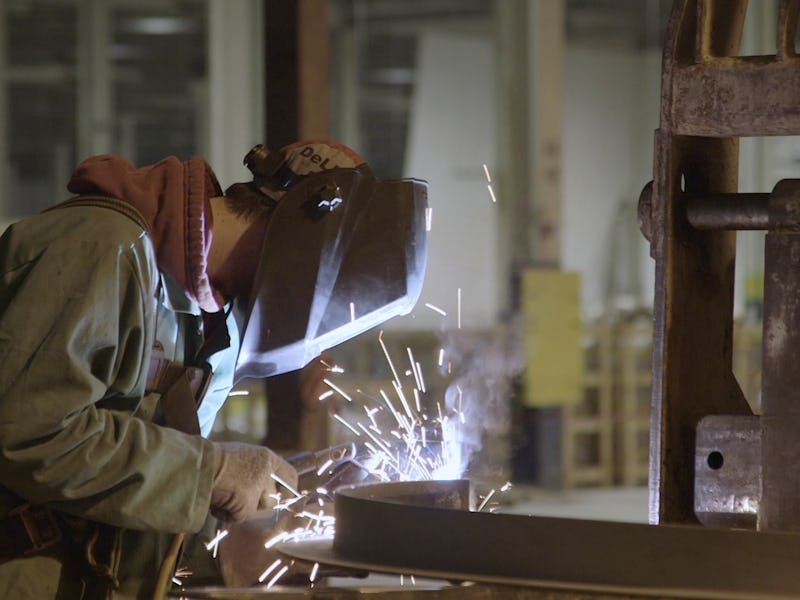American Factory producer reveals why it’s the perfect film for 190 countries
Jeff Reichert, producer of the Oscar-winning documentary, has high praise for the streaming service.

American Factory, which won this year's Oscar for best documentary, could prove to be a powerful show of force for movie streaming.
The movie chronicles the re-opening of a General Motors plant near Dayton, Ohio. The new owners, Chinese auto glass manufacturer Fuyao, experience a culture clash with the American workers that they seek to resolve to make the factory profitable. It's a captivating look at the future of labor, the struggles of unionization, and the collisions between management and workers.
In an interview before the awards, producer Jeff Reichert explained to Inverse how Netflix brought a new element to the movie's message. The streaming service, founded in 1997 as a mail DVD rental service, is now available in more than 190 countries and has over 160 million subscribers globally. It's on this global platform that a film like American Factory can communicate a broader message.
"One of the exciting things about showing the movie on Netflix is they put it up in 190 countries all at the same time," Reichert says. "We want an experience where a person who works in a factory in Brazil sees the film and watches the end of the movie and thinks, 'Oh God, that's me, that's my life.'"
Fuyao's operations form the focus of the movie.
The movie is the first from Barack and Michelle Obama's Higher Ground Productions. In the aftermath of the results, the former president congratulated co-directors Julia Reichert and Steve Bognar "for telling such a complex, moving story about the very human consequences of wrenching economic change."
For Jeff, nephew of Julia, the aim was to leave the viewer feeling like the story had an international reach. Sharing the movie globally instantly via Netflix gave them a reach that may have been denied in pre-internet days. The film's ending sequence is aimed at demonstrating these global similarities.
"We were intercutting American workers leaving the factory with Chinese workers leaving the factory," Reichert says. "The idea for us, is to suggest that there's something that binds these people, and what binds them is that they're workers. And so even though they're Chinese, even though they're Americans, there are things that they have in common with each other that they don't necessarily have with the management class and the capitalists."
While the film looks at the culture clash between the Chinese and American employees, it also demonstrates touching moments of understanding between the two groups. These scenes include a moment when an American worker visiting the Chinese headquarters stands outside a party, describing to the camera how he feels that they are all one people.
But one of the few countries where Netflix is unavailable is China. Reichert says he was pleased to hear reports that the movie was widely pirated in the country. He notes, however, that it's difficult to form an international movement.
"The situation of labor in China, it's not easy to find out exactly what that is," Reichert says. "There are publications that do very daring reporting about what's going on with labor unrest in China, but because of censorship, it's not always easy to find out tons of stuff about this. But there's a lot happening and it'd be great if we knew more about it, because it would help align politics and priorities and those movements with other movements that are happening around the world."
Toward the end, the movie notes that Fuyao was looking at one machine for a particular job that could replace four workers. With the factory of the future potentially looking a lot more automated, a joined-up international movement of workers could be needed now more than ever.